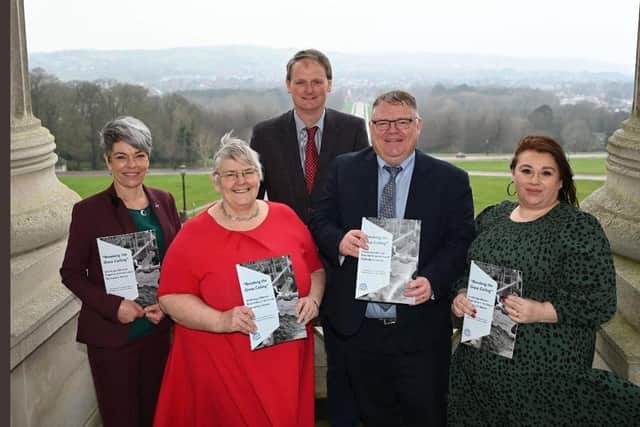Women help improve farm productivity, new report shows
and live on Freeview channel 276
The launch of this report is the result of many years of work by the committee raising the profile of women working in agriculture, through conferences, Women in Business collaborations and women in agriculture profiles.
In December 2021 the AERA committee launched their women in agriculture survey which was open for six weeks. The survey received an encouraging 187 responses. Following this, stakeholders and women who responded to the survey attended a virtual stakeholder event with members of the AERA Committee.
Advertisement
Advertisement
The survey findings, the views of women at the stakeholder event, data analysis of the composition of the local agricultural work force and review of policies in the UK, led to the report being formally launched last week at Stormont. The report makes for an interesting reading and certainly confirms the messages UFU have been hearing from women working on farms and in the local agri-food sector.


It is well known that farming is a largely male dominated industry. The research found that just 22 percent of the local agricultural workforce in NI are women. This is lower than the UK wide average which is 28 percent. The most important barriers to working in agriculture cited by women who completed the survey were gaining ownership of farms and land, caring responsibilities, lack of support from family, underrepresentation of women role models and gender bias in the industry.
Barriers to women working on farms across the UK are likely to be similar, yet in NI the number of women working in agriculture is below the UK average. To overcome these barriers everyone within the industry must work together to enable women to feel valued in the sector. There is no doubt that men and women see the positive contribution women make to farms, as 98 percent of respondents to the survey either strongly agreed or agreed that women help improve farm productivity (no respondents disagreed with this statement). However, the barriers cited are preventing this happening in practice in many cases.
To overcome the challenges women face, the AERA Committee recommended, amongst other things, that the Department should take specific actions to facilitate enhanced training and education for women in the sector. Also, that organisations across the sector should embrace affirmative action and seek to promote and encourage women where possible.
Advertisement
Advertisement
The rural affairs committee are delighted by the progress made to date by the AERA committee but are adamant that this report should not sit on a shelf. It’s for everyone within the industry to take on board and consider how their actions can help make agriculture more inclusive and diverse. A more diverse industry is a more productive, flexible and innovative industry.
Finally, better equipping women in agriculture is about positive action, not ‘special treatment’ and getting the best out of everyone in our industry. Given the difficult two years society and agriculture has endured and the current pressures of rising input costs and the growing uncertainty of supply chains and food availability, it’s time to take immediate action and ensure everyone within the NI agricultural industry is equipped to face these challenges.